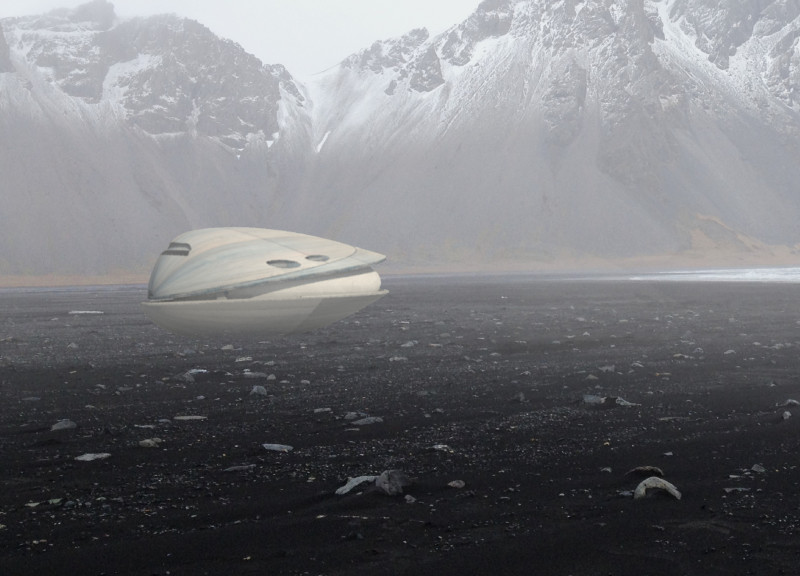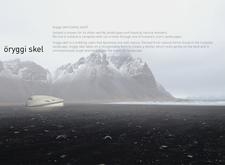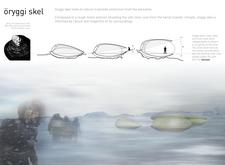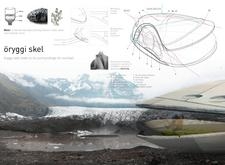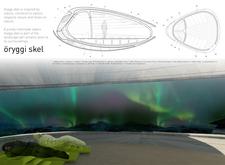5 key facts about this project
**Project Overview**
Located within the striking landscapes of Iceland, öryggi skel, or “Safety Shell,” is designed as a trekking cabin that prioritizes user comfort while fostering a connection to nature. The intent of the project is to create a shelter that resonates with its environment, emphasizing sustainability in response to the unique climatic and geological conditions of the region. This structure serves as a resting point for trekkers, promoting engagement with the natural landscape rather than mere observation.
**Material Selection and Sustainability**
The material palette of öryggi skel is carefully chosen to reflect the project's sustainability objectives. The exterior is clad in a tough metal that provides durability against the extreme weather conditions typical of Iceland. A double-layer ETFE (Ethylene Tetrafluoroethylene) membrane allows natural light into the cabin while offering insulation, contributing to the building's energy efficiency. In addition, local volcanic rocks, sand, and Icelandic moss are integrated into a water filtration system, reinforcing the commitment to utilizing regional materials. Natural insulation solutions sourced locally enhance the cabin's operational effectiveness across varying climates.
**Design Integration and User Experience**
The design of öryggi skel showcases a curvilinear exterior that mirrors the organic forms found in Iceland's natural landscape, promoting minimal environmental impact and wind resistance. The interior layout is optimized for user experience, featuring sleeping areas aligned with the horizon to foster spatial orientation and balance. Essential amenities such as a restroom and shower are incorporated into the design seamlessly.
Innovative energy solutions supplement the cabin's functionality, including a wind turbine to harness renewable energy and a rainwater collection system that uses locally sourced volcanic rock for filtration. These elements contribute to the cabin's self-sufficiency, ensuring that occupants have access to fresh air and water while immersed in the natural surroundings.


